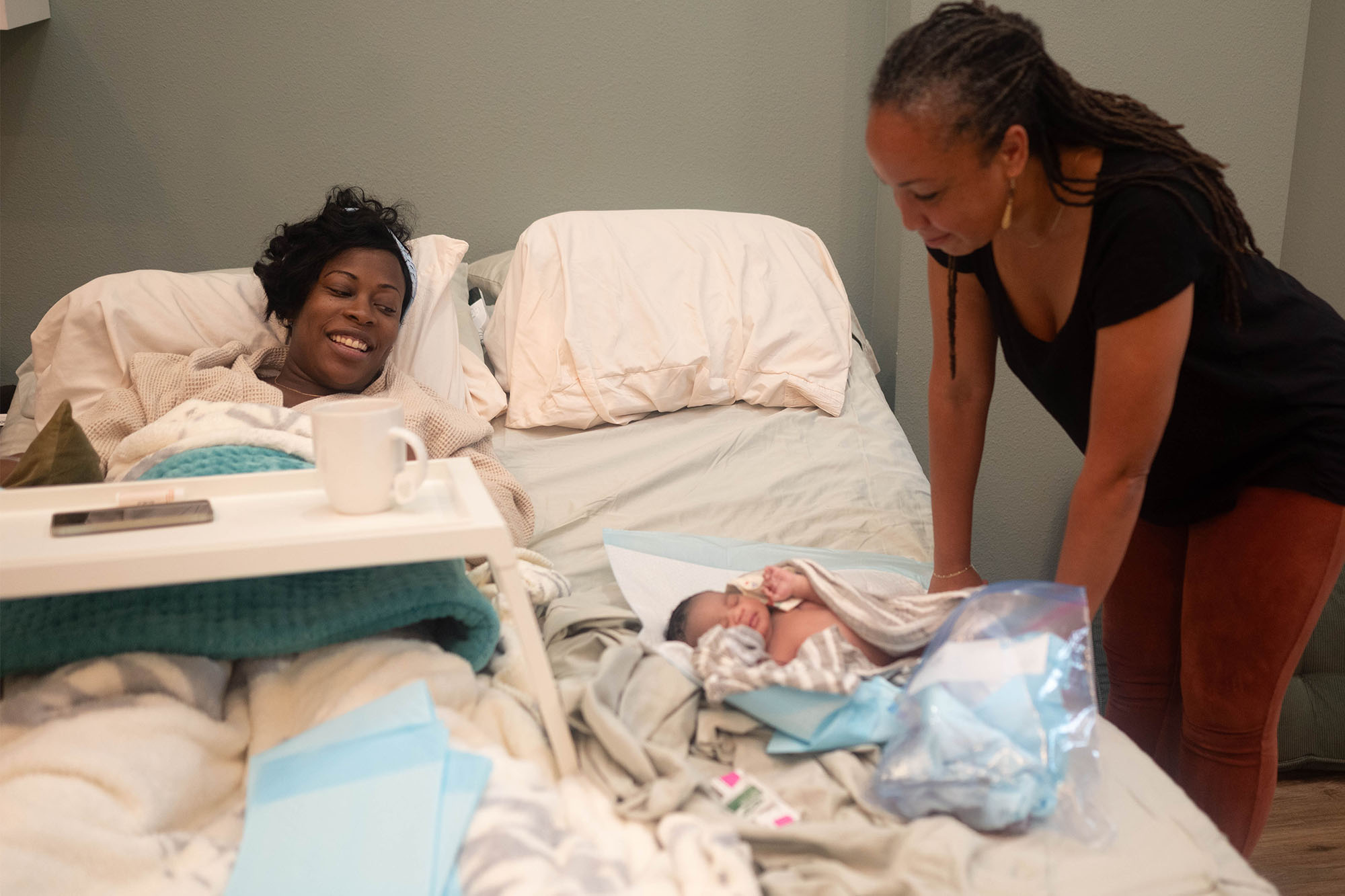About the Innovation Landscape Series
The Innovation Fund conducts a series of high-level landscape analyses on issues ripe for tech-enabled innovation. The Innovation Landscape Series aims to inform funders and customers in safety-net organizations seeking scalable solutions to meet their challenges.
Note: Senate Bill 1237 was signed into law in September 2020. It modifies scope of practice laws for certified nurse midwives, eliminating the requirement that they work under physician supervision.
Almost 500,000 babies are born every year in California — about one-eighth of all babies born nationwide — and the state’s Medicaid program, Medi-Cal, plays an outsized role in covering those births. Although Medi-Cal covers one in three Californians, it pays for nearly one in two of the state’s births.
While most babies in the US are born healthy, and maternal mortality and morbidity are rare, adverse outcomes are more common among people covered by Medi-Cal — especially those who are Black. Too often pregnant people covered by Medi-Cal receive care that is fragmented, insufficient, or at worst, discriminatory. These disparities offer opportunity for improvement and, in turn, innovation for those entrepreneurs that can work within Medi-Cal’s unique approach to delivering and reimbursing care.
Across our stakeholder interviews and market research, four categories of tech-enabled companies rose to the surface as being most common and most capable of having an impact on maternity care outcomes for people covered by Medi-Cal:
- Behavioral health: Improving access to in-person or virtual behavioral health services tailored to the unique needs of new and expecting parents
- Inpatient birth: Supporting providers in improving the quality and/or efficiency of the birth episode
- Outpatient care coordination: Addressing fragmentation across the perinatal episode through a combination of education, screening, services, and/or referrals
- Parent education and engagement: Delivering basic information about prenatal care and birth directly to consumers
Among those categories, outpatient care coordination stood out as having the most potential to address the unique challenges plaguing maternity care within Medi-Cal — especially fragmentation. (A selection of companies working in the other three categories can be found in the brief.)
Outpatient Care Coordination: Example Companies Working in Medicaid
Readers should note this landscape overview is not intended to be exhaustive, nor is it an endorsement of the companies included. Finally, because solutions landscapes can evolve quickly, this brief may not fully reflect the current market.
Authors & Contributors

Melora Simon
Associate Director, People-Centered Care











